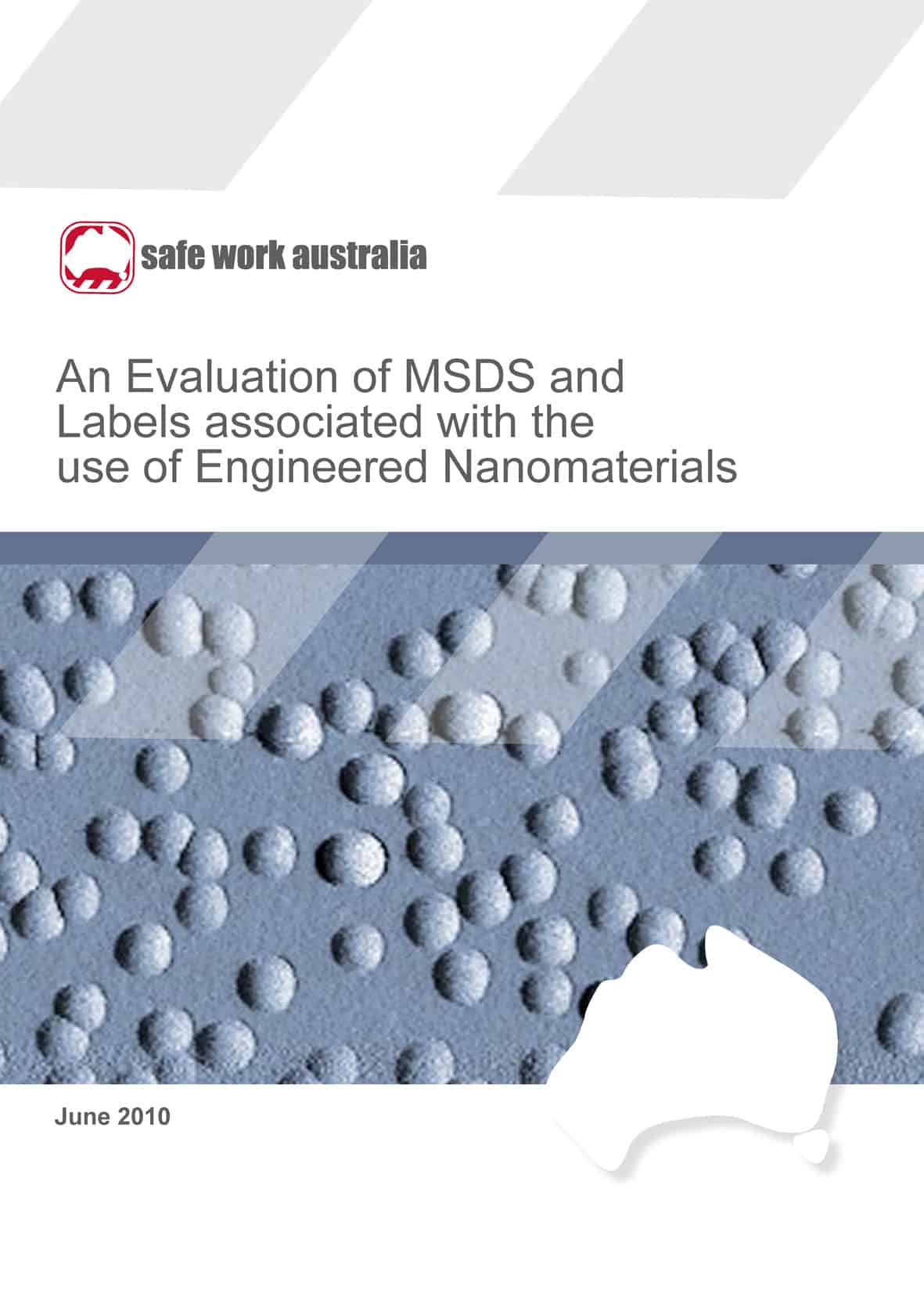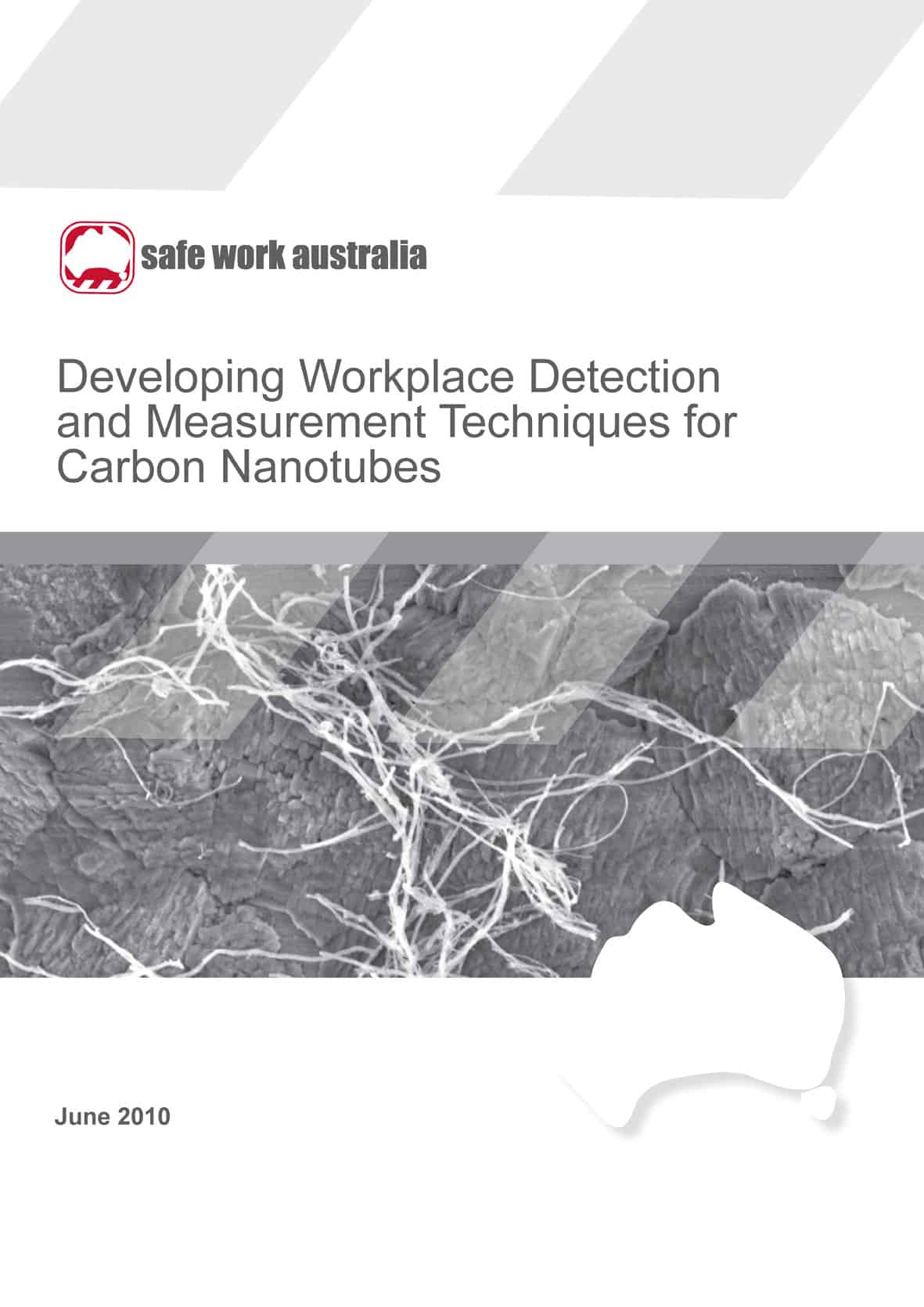Safe Work Australia has released two research papers concerning safety sisues raised by nanotechnology.
 An Evaluation of MSDS and Labels associated with the Use of Engineered Nanomaterials
An Evaluation of MSDS and Labels associated with the Use of Engineered Nanomaterials
Safe Work Australia advises that
“This report details findings from an evaluation of 50 Material Safety Data Sheets (MSDSs) and 15 labels for products containing engineered nanomaterials. Key findings in the report include:
- Most of the 50 MSDSs evaluated did not provide sufficient information to inform a work health and safety risk assessment for nanomaterials contained in the product.
- All MSDSs evaluated for carbon nanotubes described them as hazardous substances, but nearly all of the MSDSs described the hazards of carbon nanotubes to be equivalent to that of graphite. This does not align with findings on the potential health effects of carbon nanotubes.
- Exposure standards presented on most MSDSs are those for the bulk form of the material, with no qualification about its relevance or application to nano-sized materials.
- Most of the labels examined included the term nano within the product name or product description.
- The labels reflected the content as presented on the MSDSs including the inadequacies in relation to hazard classification.
- The labels did not contain additional cautionary notes regarding the suspected hazards of engineered nanomaterials.”
The report states in its Discussion:
“The finding that most MSDS are based on bulk material properties (hazard classification, physicochemical properties, exposure standards and toxicity data) is consistent with previous surveys of MSDS by other organisations.”
Sadly the report makes no recommendations for how to improve the situation. If the labelling information is wrong, legal action should be pursued.
Safe Work Australia has advised that the findings will be important considerations in the upcoming release of draft OHS regulations and code so practice.
 Developing Workplace Detection and Measurement Techniques for Carbon Nanotubes
Developing Workplace Detection and Measurement Techniques for Carbon Nanotubes
A media statement by Safe Work Australia states:
“This [CSIRO] report investigates possible approaches for detecting airborne particles that are formed as a result of emissions from carbon nanotubes. Key findings in the report include:
- Testing conducted in CSIRO’s carbon nanotube yarn production facility did not identify the presence of any airborne particles from carbon nanotubes.
- Further work was undertaken to examine the nanoparticle sampling techniques used in the testing by generating aerosols containing carbon nanotubes in a sealed containment rig. Measurements showed that instruments used in the yarn facility did detect the presence of particles of carbon nanotubes at the high concentrations present in the rig.”
This report is a useful insight in the level of the challenge faced in detecting nanomaterials when there already exists a “naturally occurring nanoparticle background”. Software engineer Tom DeMarco‘s claim that “you can’t control what you can’t measure” seems to equally apply here.
In OHS one would normally, in this case, apply the strictest control against an invisible or undetectable hazard but with the potential for harm presented by nanomaterials, the draft regulations and codes will be of great interest.

Very interesting and informative article. Safety is of course a concern with nanotechnology but what about all the things that are around us everyday that are of nano size? Car exhausts, clay soil particles in the air, etc. In addition to talking about the safety with the newly manufactured nanoparticles, we should also include that these are already in the air, and have been for many years.